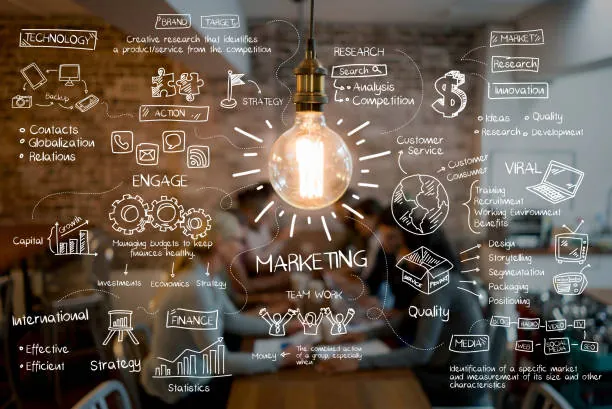In the ever-evolving landscape of Software as a Service (SaaS) marketing, innovation stands as the cornerstone for success. With technology constantly advancing, SaaS companies are embracing new paradigms to stay ahead in the competitive market. One of the most significant shifts in recent times is the integration of technology to revolutionize SaaS marketing strategies. This article delves into the transformative impact of tech integration on SaaS marketing paradigms.
Understanding SaaS Marketing Evolution
In advance of assessing the role of technology integration, it is critical to grasp the evolution of SaaS marketing. Traditionally, SaaS marketing relied heavily on conventional strategies such as email campaigns, content marketing and SEO. Although these methods still hold relevance, they have undergone significant augmentation with technological advancements, reshaping the landscape of marketing approaches. Appreciating this evolution provides crucial context for understanding the transformative impact of technology integration on modern SaaS marketing strategy procedures and paradigms.
The Power of Data Analytics
Tech integration has empowered SaaS marketers with robust data analytics capabilities; by leveraging advanced analytics tools, marketers can gain profound insights into user behavior, preferences and trends. This data-driven approach enables marketers to craft highly targeted campaigns, personalize user experiences and optimize conversion funnels, enhancing the efficacy of marketing strategies significantly. With data analytics, SaaS companies can navigate the intricate nuances of consumer preferences and patterns, guaranteeing strategic alignment with market demands.
AI-Powered Marketing Automation
Artificial Intelligence (AI) has emerged as a game-changer in SaaS marketing. AI-driven marketing automation platforms enable SaaS companies to streamline repetitive tasks, enhance lead nurturing processes and deliver personalized interactions at scale. From chatbots offering real-time support to predictive analytics aiding in customer segmentation, AI is reshaping the marketing landscape, revolutionizing the dynamics of customer engagement and conversion with unprecedented efficiency and precision.
Embracing Augmented Reality (AR) and Virtual Reality (VR)
The integration of AR and VR technologies has unlocked immersive marketing experiences for SaaS companies. By incorporating AR/VR elements into their marketing campaigns, SaaS brands engage users in interactive storytelling, product demonstrations and virtual simulations. These immersive experiences captivate audiences, cultivating deeper brand connections and driving higher conversion rates, thereby elevating the brand-consumer relationship to new heights of engagement and loyalty.
Harnessing the Power of Big Data
Big data has revolutionized how SaaS companies approach marketing strategies; by aggregating vast amounts of structured and unstructured data, SaaS marketers can uncover valuable insights, detect emerging trends and anticipate customer needs. Utilizing predictive analytics models powered by Big Data, marketers can optimize marketing campaigns, identify high-value prospects and forecast future market dynamics with precision, enabling data-driven decision-making and strategy formulation.
The Rise of Influencer Marketing Platforms
Influencer marketing has evolved into a sophisticated ecosystem facilitated by technology integration. SaaS companies are leveraging influencer marketing platforms equipped with AI-driven algorithms to identify, vet and collaborate with influencers aligning with their brand values. These platforms enable SaaS marketers to execute data-driven influencer campaigns, track performance metrics and measure ROI effectively, ensuring a strategic and impactful approach to influencer collaborations.
Personalization Through Machine Learning
Machine learning algorithms are reshaping how SaaS companies deliver personalized marketing experiences; by analyzing user interactions, preferences and past behaviors, ML-powered recommendation engines can deliver hyper-personalized content, product recommendations and targeted offers in real time. This level of personalization enhances user engagement, drives conversion rates and builds long-term customer loyalty, cultivating enduring relationships with customers based on individual preferences and needs.
Optimizing Customer Journey with IoT
The Internet of Things (IoT) is revolutionizing how SaaS companies optimize the customer journey; by integrating IoT sensors and devices, SaaS marketers can gather real-time data on user interactions with products and services. This data enables marketers to tailor marketing messages, anticipate user needs and deliver contextual experiences across multiple touchpoints throughout the customer journey, guaranteeing seamless and personalized interactions at every stage of the customer lifecycle.
Conclusion: Embracing the Future of SaaS Marketing
Innovation through tech integration has become the driving force behind the evolution of SaaS marketing paradigms. From harnessing the power of data analytics and AI-driven automation to embracing immersive technologies like AR/VR, SaaS companies are at the forefront of revolutionizing how businesses engage and convert customers. By staying abreast of emerging technologies and embracing a culture of experimentation, SaaS marketers can continue to unlock new possibilities and propel their brands to greater heights in the digital era.



